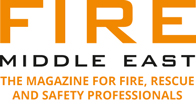23 Nov Grenfell Tower Inquiry highlights need for “technical and professional competence”
The Building Engineering Services Association (BESA) believes the recently closed Grenfell Tower Inquiry, served as a “timely reminder” of the need for “technical and professional competence”.
The inquiry ended with lawyers summing up 400 days of evidence from the 2017 fire, where they added that they had been shocked at the level of “buck-passing” that appeared to have occurred, with companies wanting to protect their own legal position rather than focus on the events that unfolded and how to prevent such a tragedy from happening again.
BESA has shared their view that this would have come as no surprise to most individuals involved with the construction sector. Indeed, BESA CEO David Frise explained that shifting blame to others was a “tried and tested tactic” used to cover up incompetence and lack of technical rigour.
Frise explained: “Some of the unedifying behaviour we have seen during the Grenfell Tower Inquiry is deeply embarrassing for our industry, but it should inspire us all to do better. The Grenfell tragedy has also led directly to the new Building Safety Act, which should, if properly enforced, leave no hiding place for people looking to cheat the system or who simply cannot be bothered to do their jobs properly.”
The Grenfell Tower Inquiry established that every one of the 72 deaths in the 2017 fire could have been avoided. Lead counsel Richard Millett KC said there had been a collective “failure to take responsibility” and he presented “a spider’s web of blame” that illustrated precisely how different parties tried to shift blame on to others.
Millett also stated that, if all the statements made to the Grenfell Tower Inquiry had been accurate, “then nobody was to blame for the Grenfell Tower fire. Can that really be right?”
According to Millett, the scale of the tragedy “ought to have provoked a strong sense of public responsibility… but many core participants appear simply to have used the Public Inquiry as an opportunity to position themselves for any legal proceedings… to minimise their own exposure to legal liability.”
The blame shifting was also highlighted by Millet as part of a ‘cover up’ alongside carelessness. He concluded: “There will have been many times in the evidence when I don’t doubt that you will have been struck by how many witnesses thought that something was somebody else’s job, but never bothered to check.”
The Metropolitan Police Service is waiting for the Grenfell Tower Inquiry panel to deliver its report before deciding whether to start criminal proceedings for the death of 72 people in 2017.
BESA’s David Frise doesn’t believe that most of the people who worked on the Grenfell refurbishment “deliberately set out to do a bad job”, but they were part of a culture that encouraged people to “play fast and loose with specifications in a bid to keep costs down”.
Frise concluded: “Not being able to do a job has not stopped people winning work in this industry for far too long now. That situation will have to change.”






